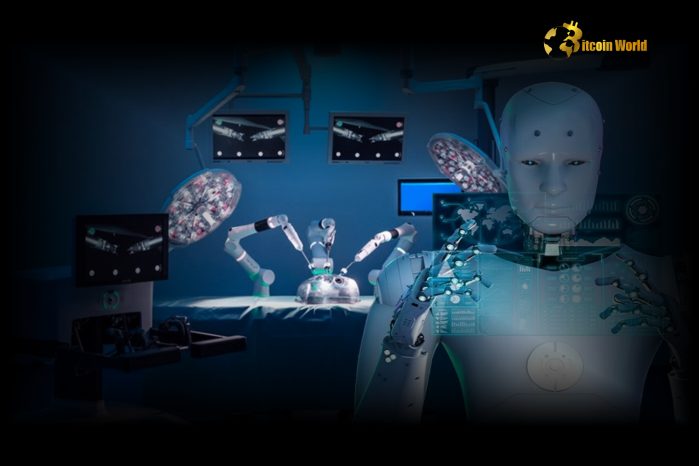AI Assistance Enhances Frame Review Accuracy Among Healthcare Professionals in Surgery
Advancements in artificial intelligence (AI) are revolutionizing medical fields, and a recent study published in Surgery demonstrates how AI assistance can significantly enhance frame review accuracy among healthcare professionals. By supporting neurosurgeons, anesthetists, and operating room nurses in the accurate identification of cerebral aneurysms, AI systems improve surgical performance and decision-making, which could lead to better patient outcomes.
Study Overview: AI-Assisted Surgical Scene Recognition
The study, titled “Artificial Intelligence Assisted Surgical Scene Recognition: A Comparative Study Amongst Healthcare Professionals,” led by Williams et al., analyzed how AI can support healthcare professionals in accurately identifying cerebral aneurysms during microscopic surgery. Operative videos from aneurysm clipping procedures were reviewed by healthcare professionals, who then labeled frames as “aneurysm in frame” or “aneurysm not in frame.” A second round involved AI assistance, allowing researchers to compare detection accuracy with and without AI.
In total, 5,154 still frames were analyzed. Three main groups were assessed for accuracy: human-only detection, AI-only detection, and AI-assisted human detection. The goal was to determine how AI assistance could enhance frame labeling accuracy and support various medical professionals in surgical contexts.
Key Findings: AI Improves Frame Labeling Accuracy
The study found that AI assistance significantly improved the accuracy of frame review across all participating healthcare professionals. Here are the major findings:
- Enhanced Detection Accuracy with AI: Healthcare professionals achieved an accuracy rate of 70% without AI assistance, while AI-assisted accuracy increased to 78% (Odds Ratio 1.77, P<0.001). This improvement shows how AI can enhance the accuracy of complex tasks, like aneurysm detection, within surgical procedures.
- Notable Improvement Among Experienced Neurosurgeons: Neurosurgical attendings demonstrated the most significant improvement, increasing their accuracy from 77% without AI to 92% with AI assistance (OR 4.24, P=0.003). This finding indicates that even experienced professionals benefit from AI support, particularly in challenging visual environments.
- Consistent Benefits Across Training Levels: AI assistance helped participants across various training levels, from trainees to attending neurosurgeons, suggesting that AI can provide value regardless of a professional’s experience level. For trainees, AI serves as a supplementary tool, enhancing learning and performance, while seasoned professionals gain added accuracy in critical decisions.
These results underscore AI’s potential as a valuable tool in surgical settings, supporting complex visual tasks that require high precision.
How AI Enhances Surgical Scene Recognition and Performance
AI’s ability to analyze large volumes of visual data quickly and accurately makes it well-suited for microscopic surgery applications. In surgical contexts, AI can enhance scene recognition, offering several advantages:
- Automated Visual Analysis: AI-powered platforms can process surgical frames automatically, identifying key structures and providing real-time feedback. This capability supports surgeons by enhancing visualization during critical phases of surgery.
- Consistent and Reliable Support: The AI’s consistency in detection provides a reliable supplement to human judgment, helping reduce variability in interpretations between different professionals and experience levels.
- Increased Speed and Efficiency: By assisting in frame review, AI enables faster, more accurate analysis, which is particularly beneficial in time-sensitive surgical scenarios. AI can potentially reduce the time needed to make accurate identifications, improving overall surgical flow.
The study demonstrates how AI support can aid healthcare professionals across different specialties, providing real-time assistance that enhances accuracy, speed, and efficiency in critical settings.
Implications for AI Adoption in Healthcare
This research supports the broader adoption of AI tools in healthcare, especially within surgical fields that require high precision and efficiency. Some key implications of the study include:
- Improved Patient Outcomes: Enhanced detection accuracy reduces the chances of missing critical information during surgery, potentially leading to better patient outcomes.
- Support for Training and Skill Development: For trainees and junior medical staff, AI offers a valuable tool that aids learning and improves performance in complex tasks, accelerating skill acquisition in high-stakes environments.
- Standardization Across Skill Levels: By improving accuracy consistently across various experience levels, AI could help standardize outcomes in surgical procedures, reducing the disparity in results due to skill variability.
Challenges and Future Directions
While the study highlights the benefits of AI in enhancing surgical accuracy, several challenges remain for widespread AI adoption in healthcare:
- Integration into Surgical Workflows: Implementing AI systems seamlessly within operating rooms and other healthcare environments requires coordination and investment in digital infrastructure.
- Data Privacy and Security: As AI relies on large datasets, maintaining patient confidentiality and data security is crucial, especially in medical fields handling sensitive information.
- Continuous Training and Updates: To maintain AI’s effectiveness, regular updates and training are necessary as new data and techniques emerge.
Conclusion
The study by Williams et al. illustrates how AI-assisted surgical scene recognition can enhance frame review accuracy among healthcare professionals, particularly in detecting cerebral aneurysms. By boosting accuracy from 70% to 78%, AI shows promise as a critical tool for supporting healthcare professionals across experience levels, improving both decision-making and patient care.
As AI technology continues to evolve, its role in healthcare is likely to expand, offering transformative potential in surgery and beyond. However, successful integration will depend on addressing privacy, workflow, and training challenges to create a secure and supportive environment for AI in medical practice.
For further insights into how AI is advancing healthcare, explore our latest news covering innovations in surgical technology and clinical AI applications
Disclaimer: The information provided is not trading advice, Bitcoinworld.co.in holds no liability for any investments made based on the information provided on this page. We strongly recommend independent research and/or consultation with a qualified professional before making any investment decisions.




